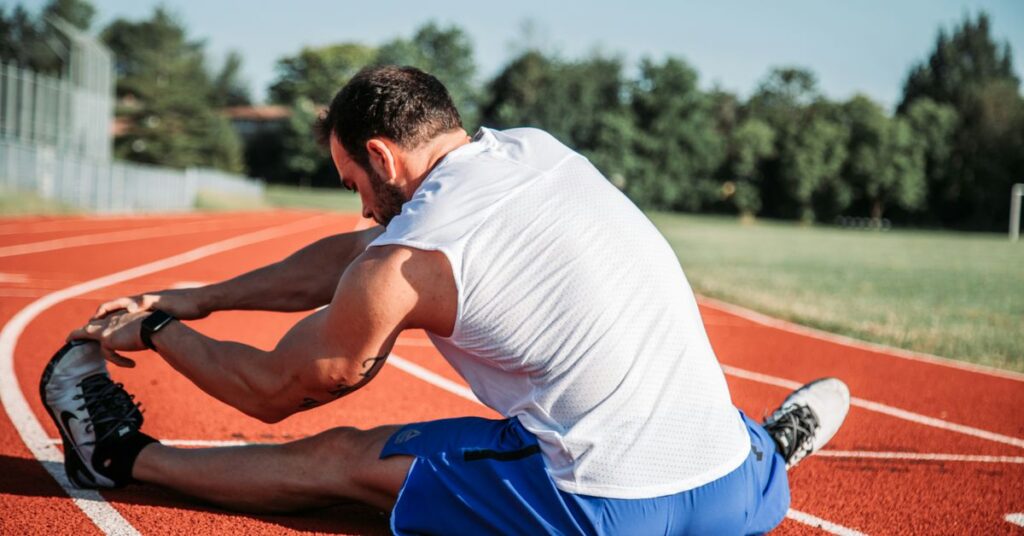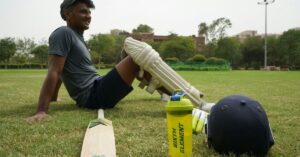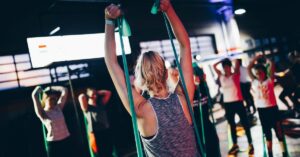Master Your Mind: Proven Techniques to Boost Your Mental Fitness for Competitive Edge

Introduction: The Overlooked Edge
In the high-octane world of sports, every athlete knows the importance of physical training. But what about mental fitness? The notion of mastering one’s mind often takes a backseat to strength and speed, yet it is this very aspect that can differentiate the good from the great. Competitive sports, whether it’s basketball, tennis, or even the more cerebral game of chess, require not just physical prowess but also an ironclad mental strategy. So, how do you elevate your mental game? Let’s dive into some proven techniques that can give you that coveted competitive edge.
The Science Behind Mental Fitness
Before we delve into specific techniques, it’s essential to understand what mental fitness truly entails. Mental fitness, in essence, refers to the state of having a healthy mind that can think clearly, stay focused, and maintain emotional balance during stressful situations. Studies have shown that a significant number of professional athletes experience performance anxiety, which can hinder their ability to deliver in high-stakes environments. In fact, some researchers estimate that nearly 30% of athletes struggle with mental health issues at some point in their careers.
It struck me that even the most decorated champions confess to battling self-doubt or pre-game jitters. Michael Phelps, the most decorated Olympian of all time, has openly discussed his struggles with mental health. This brings us to a pivotal question: if even the best face these challenges, how can we bolster our mental fitness to excel?
Mindfulness and Meditation: The Power of Presence
One of the most effective ways to enhance mental fitness is through mindfulness and meditation. These practices help athletes focus their minds and reduce anxiety, creating a mental space where peak performance can flourish. Mindfulness encourages a heightened awareness of the present moment, which can be crucial during competition.
Getting Started with Mindfulness
To initiate a mindfulness practice, consider the following steps:
- Start small: Dedicate just five minutes a day to sit quietly and focus on your breath.
- Observe your thoughts: Rather than trying to silence your mind, allow thoughts to come and go without judgment.
- Incorporate it into your training: Use mindfulness techniques as part of your warm-up or cool-down routine.
As a former athlete myself, I once tried meditating before a big game—let’s just say it didn’t go as planned. Sitting cross-legged on my bedroom floor, I found it challenging to quiet my racing thoughts about the match ahead. But with practice, I learned that it’s not about achieving perfect silence; it’s about finding clarity amid the chaos.
Visualization: Seeing is Achieving
Another cornerstone of mental fitness is visualization. This technique involves creating mental images of success and is heavily used by elite athletes to enhance performance. Research suggests that visualizing successful outcomes can significantly improve actual performance because the brain often cannot distinguish between real and imagined experiences.
How to Use Visualization Effectively
To harness the power of visualization, follow these tips:
- Find a quiet space: Just like with mindfulness, a distraction-free environment is key.
- Be specific: Visualize every detail of your performance—how it feels, what you see, and even the smells of the arena.
- Incorporate emotions: Feel the excitement of winning or the satisfaction of completing a tough workout.
Let me share a personal anecdote: before my first major race, I spent nights visualizing myself crossing the finish line. I pictured the cheers of the crowd, the feeling of my heart racing, and even the taste of the victory. While I didn’t win that day, I felt empowered and focused, and I knew I was on the path to improvement. Visualization can be a game-changer if executed correctly.
Goal Setting: The Roadmap to Success
Setting clear, achievable goals is paramount for enhancing mental fitness. Goals give athletes something to strive for, enabling them to stay motivated and focused. The SMART criteria—Specific, Measurable, Achievable, Relevant, and Time-bound—can serve as an excellent framework for effective goal-setting.
Creating Your Goals
When formulating your goals, consider these strategies:
- Write them down: Documenting your goals makes them tangible.
- Break them down: Split larger goals into manageable steps to prevent feeling overwhelmed.
- Regularly review: Revisit your goals to assess progress and make adjustments as needed.
A few years back, I set a goal to improve my 5K time. Initially, it felt daunting, but I broke it down into weekly milestones. Each week brought small victories, and before I knew it, I was crossing the finish line with a newfound confidence. It’s amazing how something as simple as goal-setting can shift your mental landscape.
Developing Resilience: The Bounce-Back Factor
Resilience is a crucial trait for athletes, enabling them to bounce back from setbacks and maintain focus during adversity. Every athlete faces challenges, be it injuries, losses, or simply the pressure of expectations. Developing mental resilience is akin to building muscle—it requires consistent effort and practice.
Strategies for Building Resilience
Consider these techniques to foster resilience:
- Embrace failure: View setbacks as opportunities for growth rather than insurmountable obstacles.
- Stay connected: Surround yourself with supportive teammates, coaches, and friends who encourage you during tough times.
- Practice positive self-talk: Replace negative thoughts with affirmations that reinforce your strength and capabilities.
I remember a time when I faced an injury that sidelined me for several months. Initially, it felt like the end of the world. But through a combination of positive self-talk and support from my team, I learned to channel that disappointment into motivation, ultimately returning stronger than before. Resilience, I discovered, is built in the trenches of adversity.
The Role of Nutrition: Fueling the Mind
It’s no secret that what you eat affects your physical performance. However, many overlook the profound impact nutrition has on mental fitness. A healthy diet rich in nutrients can enhance cognitive function, improve mood, and boost overall mental resilience.
Nutritional Tips for Mental Fitness
To optimize your mental performance, consider these dietary recommendations:
- Stay hydrated: Dehydration can lead to fatigue and impaired concentration.
- Prioritize Omega-3s: Foods like salmon, walnuts, and flaxseeds are known to support brain health.
- Limit sugar: High-sugar diets can lead to energy crashes and mood swings.
A friend of mine who is a nutritionist (and also quite the athlete) always emphasizes the importance of a balanced diet. She once told me that “you can’t out-train a bad diet.” It’s a catchy phrase, but it resonates. The mind and body are interconnected, and fueling one will inevitably affect the other.
Emotional Regulation: Mastering Your Feelings
Emotion regulation refers to the ability to manage and respond to emotional experiences. For athletes, controlling emotions such as fear, anxiety, or anger can be the difference between a stellar performance and a complete meltdown. Research indicates that athletes who effectively manage their emotions are more likely to succeed.
Techniques for Effective Emotional Regulation
To enhance your emotional regulation skills, try the following approaches:
- Identify triggers: Recognize situations that provoke strong emotional responses.
- Practice breathing exercises: Deep, controlled breathing can help calm nerves and refocus your mind.
- Seek professional help: Don’t hesitate to consult a sports psychologist if you’re struggling with emotional regulation.
I once attended a workshop where a sports psychologist shared a breathing technique that completely changed my pre-game routine. Simply inhaling for four counts, holding for four, and exhaling for four helped me regain composure before big competitions. It’s amazing how something so simple can have a profound impact!
Building a Support Network: The Power of Community
The journey to mental fitness doesn’t have to be solitary. Building a support network can provide encouragement, accountability, and shared experiences. Engaging with fellow athletes—whether through clubs, social media, or local events—can foster camaraderie and bolster mental health.
Fostering Your Support System
Here’s how to cultivate a strong support network:
- Join local clubs: Participating in group training or events can connect you with like-minded individuals.
- Engage with online communities: Platforms like forums and social media groups can provide valuable insights and shared experiences.
- Communicate openly: Share your challenges and victories with your support network to build deeper connections.
Reflecting on my own experiences, I remember the camaraderie I felt when training with my team. We celebrated victories together, and when things went south, we lifted each other up. It’s a beautiful reminder that, in sports and life, you’re never truly alone.
Conclusion: Your Competitive Edge Awaits
In the world of competitive sports, mental fitness can be the secret weapon that propels you to new heights. By integrating mindfulness, visualization, goal-setting, resilience, proper nutrition, emotional regulation, and a supportive community, you can master your mind and sharpen your competitive edge. The journey to mental fitness is ongoing—much like training for a marathon, it requires dedication and persistence.
So, whether you’re a seasoned athlete or just someone looking to improve your mental game, remember that the mind is a powerful ally. With the right techniques and mindset, you can unleash your full potential and thrive in the competitive arena. After all, the body may be the vessel, but it’s the mind that steers the ship.






